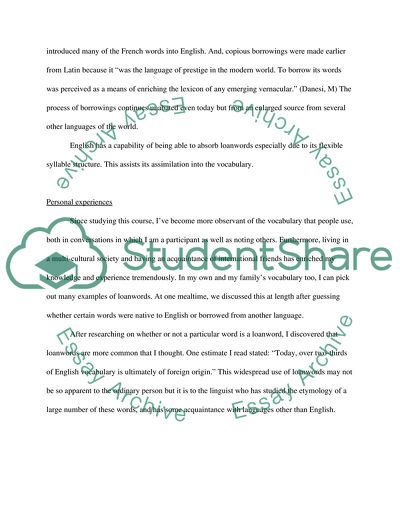Cite this document
(Loanwords in English Essay Example | Topics and Well Written Essays - 2250 words, n.d.)
Loanwords in English Essay Example | Topics and Well Written Essays - 2250 words. Retrieved from https://studentshare.org/english/1718340-you-may-choose-one-from-the-topic-list
Loanwords in English Essay Example | Topics and Well Written Essays - 2250 words. Retrieved from https://studentshare.org/english/1718340-you-may-choose-one-from-the-topic-list
(Loanwords in English Essay Example | Topics and Well Written Essays - 2250 Words)
Loanwords in English Essay Example | Topics and Well Written Essays - 2250 Words. https://studentshare.org/english/1718340-you-may-choose-one-from-the-topic-list.
Loanwords in English Essay Example | Topics and Well Written Essays - 2250 Words. https://studentshare.org/english/1718340-you-may-choose-one-from-the-topic-list.
“Loanwords in English Essay Example | Topics and Well Written Essays - 2250 Words”, n.d. https://studentshare.org/english/1718340-you-may-choose-one-from-the-topic-list.


